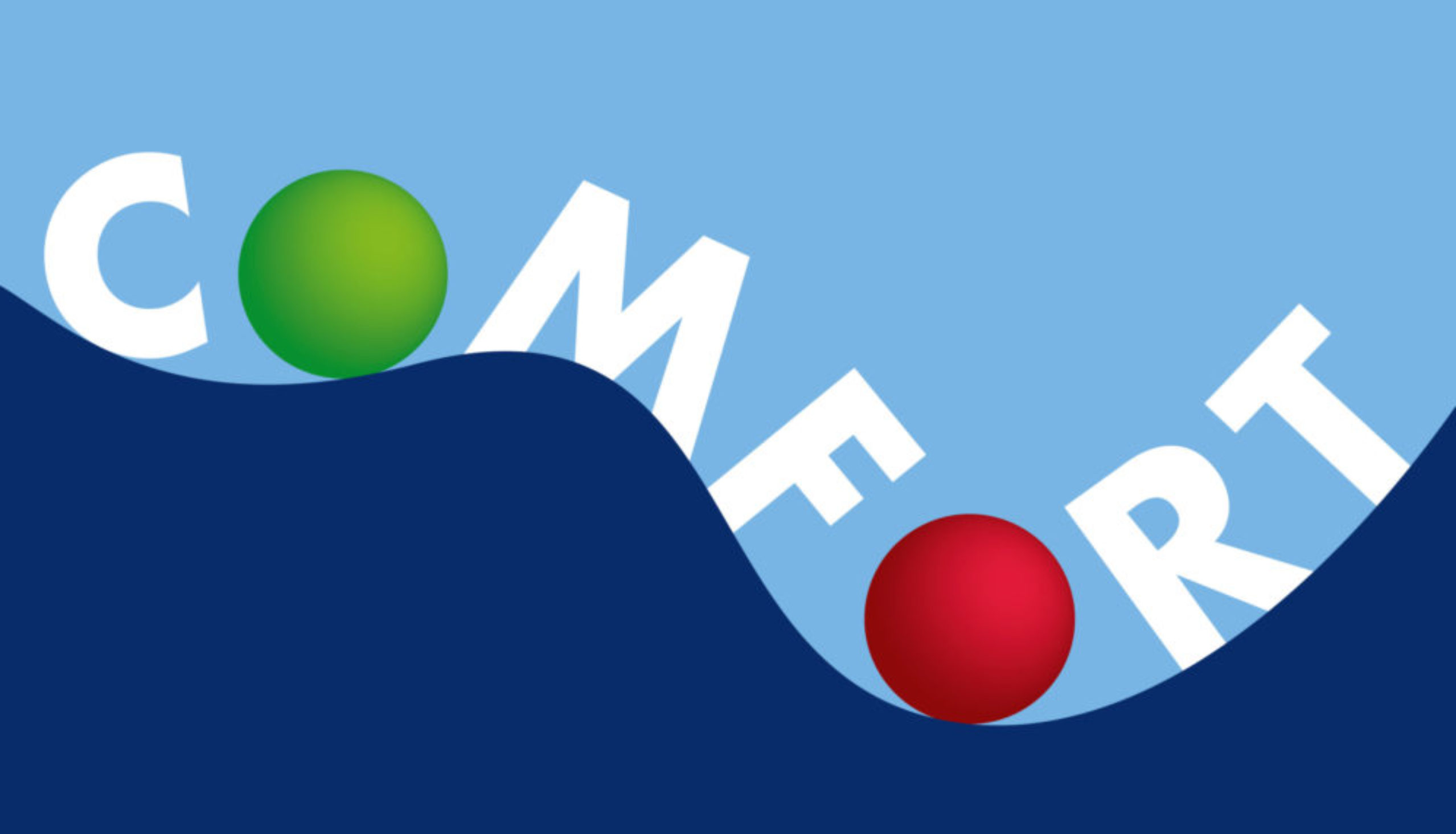![]() ENGLISH VERSION (
ENGLISH VERSION (![]() Norwegian version below)
Norwegian version below)
Acronym - full title: COMFORT - Our common future ocean in the Earth system – quantifying coupled cycles of carbon, oxygen, and nutrients for determining and achieving safe operating spaces with respect to tipping points
Project number: 820989.
Duration, starting data: 48 months, start 1.Sept.2019.
Topic: LC-CLA-08-2018, Addressing knowledge gaps in climate science, in support of IPCC reports.
Call identifier: H2020-LC-CLA-2018-2.
Abstract: COMFORT will close knowledge gaps for key ocean tipping elements under anthropogenic physical and chemical climate forcing through an interdisciplinary research approach. It will provide added value to decision and policy makers in terms of science based safe marine operating spaces, refined climate mitigation targets, and feasible long-term mitigation pathways. We will determine the consequences of passing tipping points in physical tipping elements for the marine carbon, oxygen, and nutrient cycles, as well as tipping points in biogeochemical tipping elements. The respective impact on marine ecosystems will be determined. Projections of the Earth system and impact studies have so far been carried out sequentially in a chain from scenarios to projections to off-line impact studies. This sequential workflow has hampered a quick response of the impact community back to revised scenarios and projections for tackling climate mitigation. COMFORT breaks new ground by bringing together experts from Earth system science, oceanography, fisheries science and ecology in a single integrated project who will work in parallel with a consistent set of analysis tools, scenarios, and interoperable models. The strength of COMFORT lies in the system-focused interdisciplinary approach as opposed to existing studies at the level of individual subsystems. The approach will be pursued with a firm link to stakeholders. COMFORT results will contribute to all four expected impacts for this call.
These impacts are:
- supporting major international scientific assessments such as the IPCC;
- increase confidence in climate change projections;
- providing added-value to decision and policy makers;
- sustaining Europe's leadership in climate science.
A flow diagram representing links between the different models used in COMFORT can be found here.
![]() NORWEGIAN VERSION
NORWEGIAN VERSION
Akronym - full tittel: COMFORT – «Our common future ocean in the Earth system – quantifying coupled cycles of carbon, oxygen, and nutrients for determining and achieving safe operating spaces with respect to tipping points» (Vårt felles fremtidige hav i jordsystemet - kvantifisere koblede sykluser av karbon, oksygen og næringsstoffer for å bestemme og oppnå trygge operasjonsområder med hensyn til vippepunkter).
Prosjektnummer: 820989.
Varighet, start-dato: 48 måneder, start 1.sept.2019.
Emne: LC-CLA-08-2018, Addressing knowledge gaps in climate science, in support of IPCC reports (å håndtere kunnskapshull i klimavitenskap, til støtte for IPCC -rapporter).
Utlysningsidentifikator: H2020-LC-CLA-2018-2.
Sammendrag: COMFORT vil lukke kunnskapshull for viktige havtippelementer under menneskeskapt fysisk og kjemisk klima-pådriv gjennom en tverrfaglig forskningstilnærming. Det vil gi merverdi til beslutninger og beslutningstakere når det gjelder vitenskapsbaserte, sikre marine operasjonsområder, forbedrede mål for klimabegrensning og gjennomførbare langsiktige tiltak til å begrense klimaendringer og relaterte påvirkninger. Det vil gi merverdi til beslutninger og beslutningstakere når det gjelder vitenskapsbaserte, sikre marine operasjonsområder («safe operating spaces»), nye-definerte mål for klimabegrensning og gjennomførbare langsiktige tiltak til klimabegrensning. Vi vil bestemme konsekvensene av å passere vippepunkter i fysiske komponenter («tipping elements») for de marine karbon-, oksygen- og næringssyklusene, samt vippepunkter i biogeokjemiske komponenter. Den respektive innvirkningen på marine økosystemer vil bli bestemt. Projeksjoner av jordsystemutviklingen og konsekvensstudier har så langt blitt utført sekvensielt i en kjede fra scenarier til projeksjoner til «off-line» påvirkningsstudier. Denne sekvensielle arbeidsflyten har hemmet en rask respons fra påvirkningssamfunnet tilbake til reviderte scenarier og anslag for å håndtere klimabegrensning. COMFORT bryter ny vei ved å samle eksperter fra jordsystemvitenskap, oseanografi, fiskerifag og økologi i et enkelt integrert prosjekt som vil fungere parallelt med et konsistent sett med analyseverktøy, scenarier og kompatible («interoperable») modeller. Styrken til COMFORT ligger i den systemfokuserte tverrfaglige tilnærmingen i motsetning til eksisterende studier på nivået til individuelle delsystemer. Tilnærmingen vil bli gjennomført sammen med interessenter utenfor prosjektet («stakeholders»). COMFORT-resultatene vil bidra til alle fire forventede virkningene.
Disse virkningene er:
- støtte store internasjonale vitenskapelige vurderinger som IPCC rapporter;
- øke tilliten til anslagene for klimaendringer;
- gi merverdi til beslutninger og beslutningstakere;
- opprettholde Europas lederskap innen klimavitenskap.
